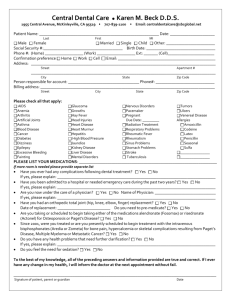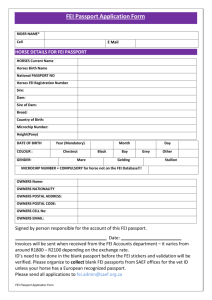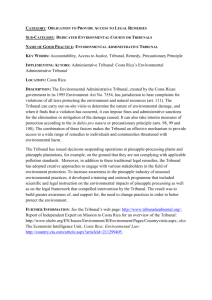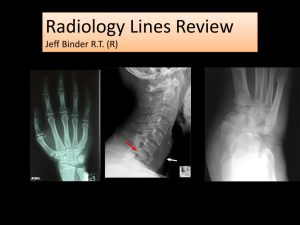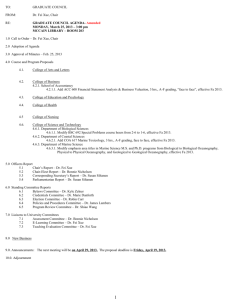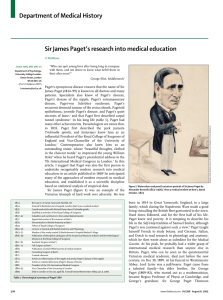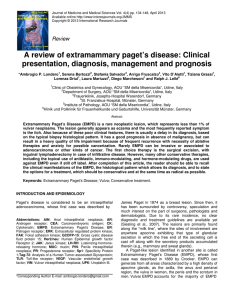Anti-Doping Violations and the Use of Supplements in Sport 2014
advertisement
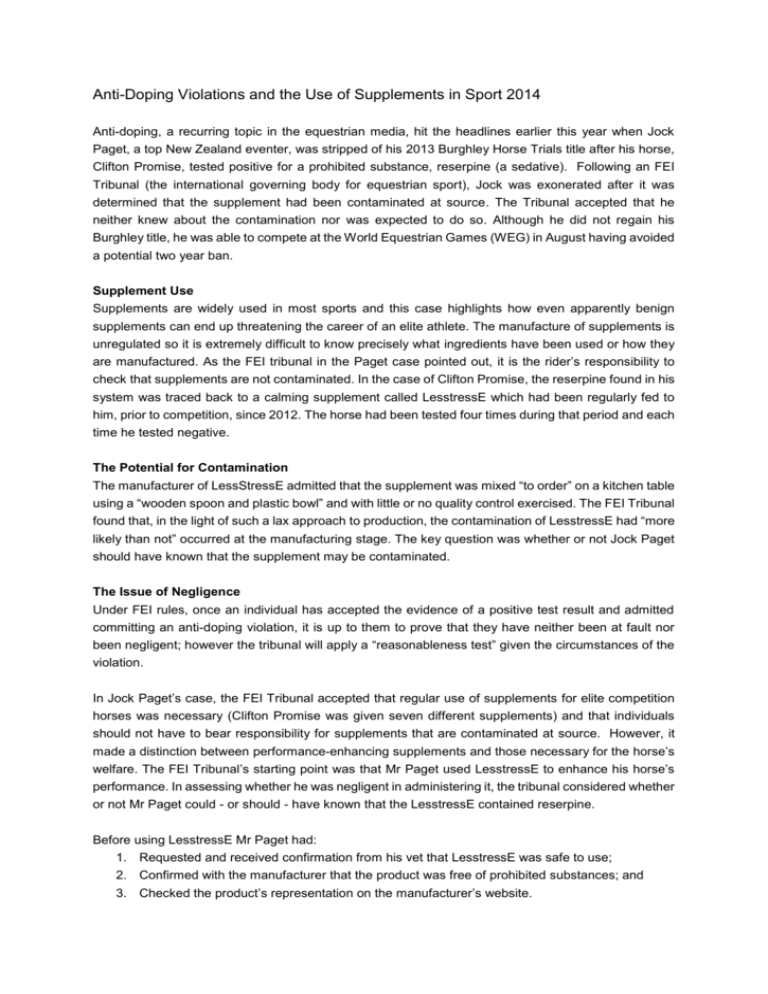
Anti-Doping Violations and the Use of Supplements in Sport 2014 Anti-doping, a recurring topic in the equestrian media, hit the headlines earlier this year when Jock Paget, a top New Zealand eventer, was stripped of his 2013 Burghley Horse Trials title after his horse, Clifton Promise, tested positive for a prohibited substance, reserpine (a sedative). Following an FEI Tribunal (the international governing body for equestrian sport), Jock was exonerated after it was determined that the supplement had been contaminated at source. The Tribunal accepted that he neither knew about the contamination nor was expected to do so. Although he did not regain his Burghley title, he was able to compete at the World Equestrian Games (WEG) in August having avoided a potential two year ban. Supplement Use Supplements are widely used in most sports and this case highlights how even apparently benign supplements can end up threatening the career of an elite athlete. The manufacture of supplements is unregulated so it is extremely difficult to know precisely what ingredients have been used or how they are manufactured. As the FEI tribunal in the Paget case pointed out, it is the rider’s responsibility to check that supplements are not contaminated. In the case of Clifton Promise, the reserpine found in his system was traced back to a calming supplement called LesstressE which had been regularly fed to him, prior to competition, since 2012. The horse had been tested four times during that period and each time he tested negative. The Potential for Contamination The manufacturer of LessStressE admitted that the supplement was mixed “to order” on a kitchen table using a “wooden spoon and plastic bowl” and with little or no quality control exercised. The FEI Tribunal found that, in the light of such a lax approach to production, the contamination of LesstressE had “more likely than not” occurred at the manufacturing stage. The key question was whether or not Jock Paget should have known that the supplement may be contaminated. The Issue of Negligence Under FEI rules, once an individual has accepted the evidence of a positive test result and admitted committing an anti-doping violation, it is up to them to prove that they have neither been at fault nor been negligent; however the tribunal will apply a “reasonableness test” given the circumstances of the violation. In Jock Paget’s case, the FEI Tribunal accepted that regular use of supplements for elite competition horses was necessary (Clifton Promise was given seven different supplements) and that individuals should not have to bear responsibility for supplements that are contaminated at source. However, it made a distinction between performance-enhancing supplements and those necessary for the horse’s welfare. The FEI Tribunal’s starting point was that Mr Paget used LesstressE to enhance his horse’s performance. In assessing whether he was negligent in administering it, the tribunal considered whether or not Mr Paget could - or should - have known that the LesstressE contained reserpine. Before using LesstressE Mr Paget had: 1. Requested and received confirmation from his vet that LesstressE was safe to use; 2. Confirmed with the manufacturer that the product was free of prohibited substances; and 3. Checked the product’s representation on the manufacturer’s website. However, Mr Paget had not sought third party (independent) confirmation that LesstressE was free from prohibited substances. Nonetheless, there were two key factors in Mr Paget’s favour: first, he had used the product in competitions since 2012 and second, Clifton Promise had tested negative for prohibited substances each of four times previously while taking LesstressE. If Burghley had been the first time Mr Paget had used the product then the FEI Tribunal suggested that, without an independent guarantee, Mr Paget might have assumed the risk of contamination and therefore may have been found at fault. However, taking into account Mr Paget’s previous use of the product, the FEI Tribunal considered that the results from the previous tests, taken at competitions, were comparable to an independent third party testing authority. Therefore, Mr Paget had the right to rely on the product not containing any prohibited substances. The FEI Tribunal concluded that Mr Paget was not negligent as he could not have reasonably known or suspected that certain subsequent batches of LesstressE would be contaminated with reserpine. Other significant contamination cases At WEG two other horses tested positive for Controlled Medication Substances which are legally used to treat horses for medical conditions but are not allowed in competition. The first, an endurance horse, tested positive for the painkiller phenylbutazone and the second, French eventer Qalao des Mers ridden by Maxime Livio, tested positive for the sedative acepromazine. This is potentially extremely serious for the French eventing team: if the FEI tribunal finds against Maxime Livio, then the team could be disqualified from their 4th place at WEG, losing their qualification for Rio. In June this year, Estimate, the Queen’s 2013 Gold Cup winner, tested positive for morphine. Six other racehorses all tested positive for morphine in similar circumstances. At a hearing in September the British Horseracing Authority (“BHA”) accepted that all seven instances could be traced back to contaminated feed and confirmed that in spite of the trainers taking “all reasonable precautions to avoid breaching the Rules of Racing”, all the horses involved would be disqualified from the relevant races. In summary All the cases outlined above show how easy it is to fall foul of the anti-doping rules – and the same would apply across the majority of sports. Where supplements are used it is essential to check, as far as possible that none of the ingredients are likely to lead to a positive test. This is not as easy as it might sound – the feed contaminated with morphine came from a very well established provider of horse feed. The reputational damage that a positive test can cause and the length of time it takes to process a case means that anyone accused of a doping violation would be well advised to take early, independent legal advice. We have dealt with a wealth of disciplinary cases on behalf of National Governing Bodies and individuals, and would be happy to provide an initial assessment of your case without obligation. Ruth MacCarthy Wright Hassall LLP
